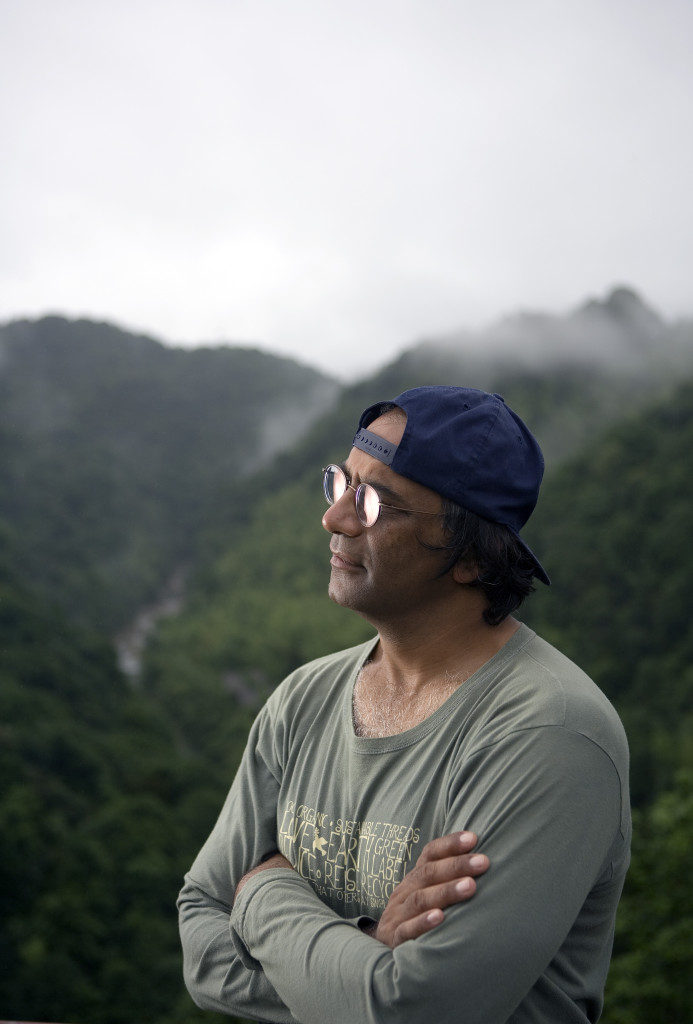Kenya-born Hitesh Mehta is one of the world’s leading authorities on sustainable tourism and ecotourism physical planning, especially as they apply to the architecture and landscaping of ecolodges. He is President and Founder of HM Design, a Florida- based firm that has built projects and consulted in over 57 countries on six continents and received numerous international accolades for its accomplishments in architecture, landscape architecture, environmental planning, urban planning and design, interior design and photography.
Mehta is the author of Authentic Ecolodges (Harper Collins), main editor of the International Ecolodge Guidelines, sits on the advisory board of The International Ecotourism Society, and has judged multiple major sustainable tourism hospitality awards. In July 2006, National Geographic Adventure magazine named him as one of the planet’s five Sustainable Tourism Pioneers.
Hotelier International: Are people more aware of what ecotourism represents today?
Hitesh Mehta: A tipping point occurred several years ago. The percentage of people aware of environmental issues and degradation, and what the human ecological footprint is doing to the planet, has become huge. It’s great to see, but there’s still a lot of work to do.
HI: As a result, has your worldview changed with regard to ecotourism?
HM: Now that ecotourism is not being looked at as a fad, I am focussing more on Authentic Ecotourism and embracing the Jain concept of Ahimsa, or “non-violence to your fellow humans and non-human beings.”
HI: Has your work therefore gotten easier or harder?
HM: Clients have become more conscientious and are doing their homework before they seek me out. I’ve made a very strong statement: I only work on eco- and socially friendly projects. I don’t have to convince anyone about what I’m doing.
HI: But you’ve set a high bar for yourself.
HM: Yes, but that’s not a problem. Instead it’s protection against planners and designers who tout themselves as green when they’re really not, which is the equivalent of greenwashing.
HI: What are some of the challenges you face when working in urban versus rural environments?
HM: The principles of design and planning are the same whether you’re building an ecolodge in a pristine natural area or a 200-
room hotel in an urban location. The local community needs to be identified and consulted. And the physical and cultural context should be considered in both locations too. It’s like the foundations of a building; whether you’re in a pristine forest or an urban lot, you still have to lay the foundations properly.
HI: Surely there are differences too.
HM: Of course. In pristine settings you have to be extremely careful about respecting what exists, but in urban areas, most natural things have been destroyed. Urban hotels also tend to be larger because of the demographics. For the utilities, that means everything is huge compared to what an ecolodge would have. But still, a lot of the basics don’t change no matter where you are.
HI: How has the perception of ecotourism and ecolodges changed in recent years?
HM: I look at today’s perceptions in a more positive light than those of the 1990s. Back then, ecolodges were thought of as rustic places where you slept on the floor and shared toilets. Eco- friendliness was valued over aesthetics. But today, now that eco- technology is better and cheaper, you can do ecolodge projects that are luxury and eco-friendly. The challenge is to make people aware that there are places for everyone, including affordable ones for the mainstream.
HI: What can urban hoteliers learn from ecolodges?
HM: I’ve said before that true green starts in the creation of the building. It’s not just about LED bulbs, low-flow shower heads and recycling programs. It means using low- or zero-VOC paints, chemical-free furniture, and natural cooling and heating systems.
It means studying authentic ecolodges using alternative power, reclaimed-water systems and responsibly grown produce.
Long-term sustainability is only viable if there’s a good balance between the financial, environmental, social and spiritual aspects of a project – a quadruple-bottom-line principle that all tourism accommodation should enforce in their design and construction phases. Then, in their operations, they need to provide guests with holistic experiences that connect their senses to urban ecosystems, local communities and their cultures


